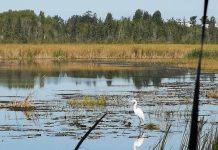
On behalf of Ontario’s 250,000 waterfront property owners, the Federation of Ontario Cottagers’ Associations (FOCA) has grave concerns about the use of crude taxation affecting real estate in Ontario.
FOCA has circulated the comments below in a letter dated April 4, 2017 to the Hon. Charles Sousa, Minister of Finance (Ontario), and The Honourable Bill Morneau, Minister, Department of Finance Canada.
The comments to the Ministers are related to FOCA’s significant concerns with any proposed increases to the capital gains taxes applicable on the disposition of real property, as one of the options to address overheated (Toronto) real estate prices.
FOCA is a not-for-profit association that represents a membership of over 500 community associations across Ontario. Collectively, waterfront residential property owners in Ontario pay over $800 million in property taxes annually, and have an important economic and social role in 200 Ontario municipalities.
These families contribute not only as property taxpayers but also as community volunteers, often for multiple generations.
The waterfront properties owned by these families are part of their family legacy, often the centrepiece of a family heritage and history. Currently these families face the unfortunate and painful experience of paying capital gains on their (non-primary) residences, even when they pass their property on to their offspring — as many intend to do.
They are NOT property speculators, and therefore should not be shouldered with punitive financial treatment in the name of trying to cool markets elsewhere in Ontario — or for any reason.
We are fortunate that in the 2017 federal budget delivered March 21st in the House of Commons by the Minister of Finance, they avoided the folly that the “unintended consequence” of such a rash move to increase capital gains would result in for thousands of Canadian families.
As was stated recently by Canadian Press, “…there’s concern that expansion of blunt federal tools that have cross-Canada reach could hurt less-worrisome markets.”
The punitive capital gains treatment on these assets is already a tremendous burden, and if anything, should be reduced or eliminated — not increased.
Respectfully, we recommend that any future proposals related to the tax implications of residential property be appropriately considered and vetted by the Ontarians who will be most directly impacted.
FOCA is available for such consultations on behalf of Ontario’s waterfront residents.


























